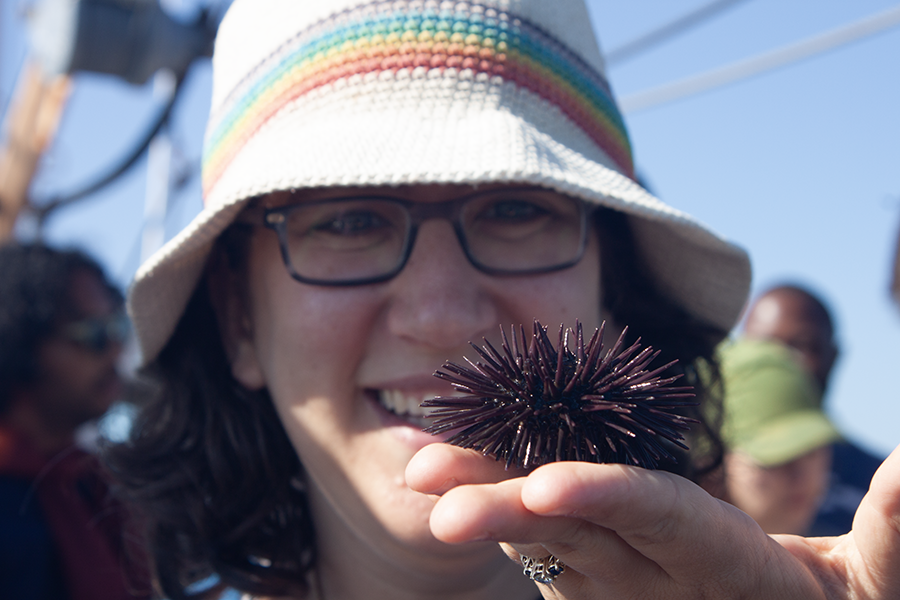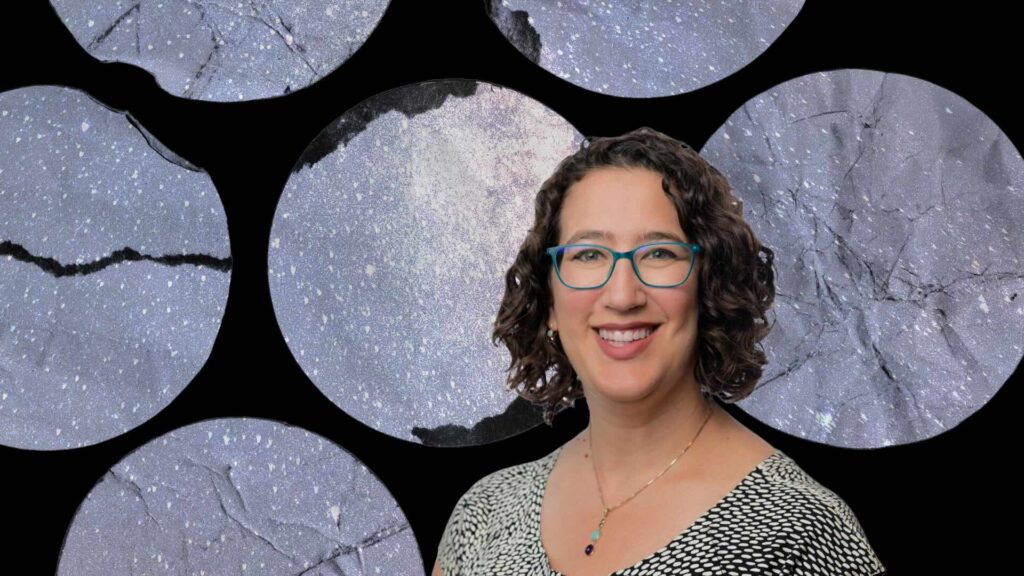Lisa Grossman was one of those kids obsessed with aliens. At age eight, she begged her parents for a telescope, and by age 13, she was taking astronomy summer classes. She later enrolled in college at Cornell University and found her way to an astronomy lab, where she studied pictures of Martian dirt. She was dismayed to find it extremely boring.
“If I’m not going to be an astronomer,” Grossman asked herself in college, “What am I doing?” Her father, a publisher and amateur poet, encouraged her to try out writing science stories for the student newspaper. It stuck.
Grossman went on to earn a graduate certificate in science writing from U.C. Santa Cruz, and in the 14 years since has built a flourishing career in space writing. She worked as a reporter and then as an editor for New Scientist, and she is currently the astronomy writer for Science News. Now she’s joined MIT as a Knight Science Journalism Fellow, and she’s pushing herself out of her usual orbit.
It is a trajectory that began in 2018, when, in the span of a few months, Grossman lost her mother to hospital complications related to a cancer diagnosis and became pregnant with her first child, by way of intrauterine insemination. Grossman’s relationship to science irreversibly shifted. She’s now looking to learn the fascinating — and often painful — science behind those two life-altering events. Grossman plans to weave biology, memoir, and investigation into a book to help others find solace in science. I spoke with Grossman about her journey from astronomer to astronomy reporter, and from reporter to memoirist. (The following interview has been edited for length and clarity.)
Hannah Richter: You studied astronomy before you became an astronomy writer. How does that give you a unique perspective when talking to scientists?
Lisa Grossman: It’s a little weird and uncomfortable being from astronomy, but not of astronomy. I made the mistake a couple of times where I’d be like, Oh, cool. We’re having a space conversation. I know how to talk this language. I feel very comfortable. And then I went back over the interview, and I had no quotes. So for a while, I would pretend I didn’t have a space background because I know the words they’re using, but my readers don’t. There’s a tension between wanting to have a rapport with a source and convince them I know what they’re talking about, but also trying to remember to serve the reader and not impress my sources.
HR: It can sometimes seem to an outsider like the developments in astronomy are minor — things like recalculating an important number or updating a theoretical model. How do you make seemingly small discoveries have a big impact in your stories?
LG: Sometimes you have to choose your moment to write about something. I read a lot of pitches that are like, “This is a solution to a problem you didn’t know was a problem.” And those don’t make good stories. Sometimes they do if the solution is cool enough or if the problem is cool enough.
Even in a paper that is clearly really cool, the thing that’s cool to the astronomers is different from what’s cool to the public. I ask big picture questions, like “I know you’re really excited that you finally got this number. Why does someone who’s not working on it care about this number? What do people say to you at conferences when you present this number?” And then sometimes straight up “Why should my editor care?”

HR: When so much of what people read these days is scary or depressing, we can usually count on astronomy stories to deliver a dose of good news. Do you play into that when you’re writing?
LG: In 2020, science writers who were covering the pandemic were impacting people’s lives immediately. People needed that information. And I was like, “We’re sending a robot to Mars again! That still matters, I think?” I was not convinced that it mattered. I wanted to be doing something that helped right now. My editor sat me down and was like, “People need to read stuff that’s not scary. We need to remember that there’s other stuff out there and we need to have a little bit of fun.”
I would like to be doing stories that feel more immediately impactful, but it’s also nice to just be an entertainer. I also think [astronomy] is important as a gateway science. Even though it’s actually extremely physics heavy, people have relationships with the stars and the night sky. It’s very normal and human to just be like, “Oh, I wonder.”
HR: You’ve spent most of your career writing exclusively about space. What made you feel ready to take a leap and tell a much more personal story?
LG: Five years ago is not that long. But I would not have been able to do this earlier. I think I am at a point where I want to exorcize this so that I can not carry it around anymore. A couple years ago, I did not feel that way.
The thing I’m doing in the [KSJ] program with learning science, learning cancer biology, is learning about what happened to my mom. I didn’t understand it. And my response to things I don’t understand has always been to go through and learn more. It feels very self-focused to write a memoir, but I hope there’s stuff in it that could help people.
HR: As a writer, you are much more involved in the narrative of a memoir than that of a journalistic piece. How are you thinking about stepping into a new, more involved role in your writing?
LG: In first person narrative, it’s not really you, it’s a version of you. So my narrator for this book is a good stand-in for the kind of reader I want to attract because she doesn’t know this science, but she’s curious and knows how to find out. I want to say “I’m going on this journey. Come with me. We’re going to be on the same page. I’m not ahead of you.” I like that for my narrator — and myself.
Hannah Richter is a student in the MIT Graduate Program in Science Writing.





Dearest Lisa – I remember when Catherine told me that she was friends with a real rocket scientist…YOU! I’ve enjoyed watching your growth in science writing, your marriage and being a mother. Just remember that you’ve got an elderly groupie…ME! Hugs, Leslie Rogers Manix